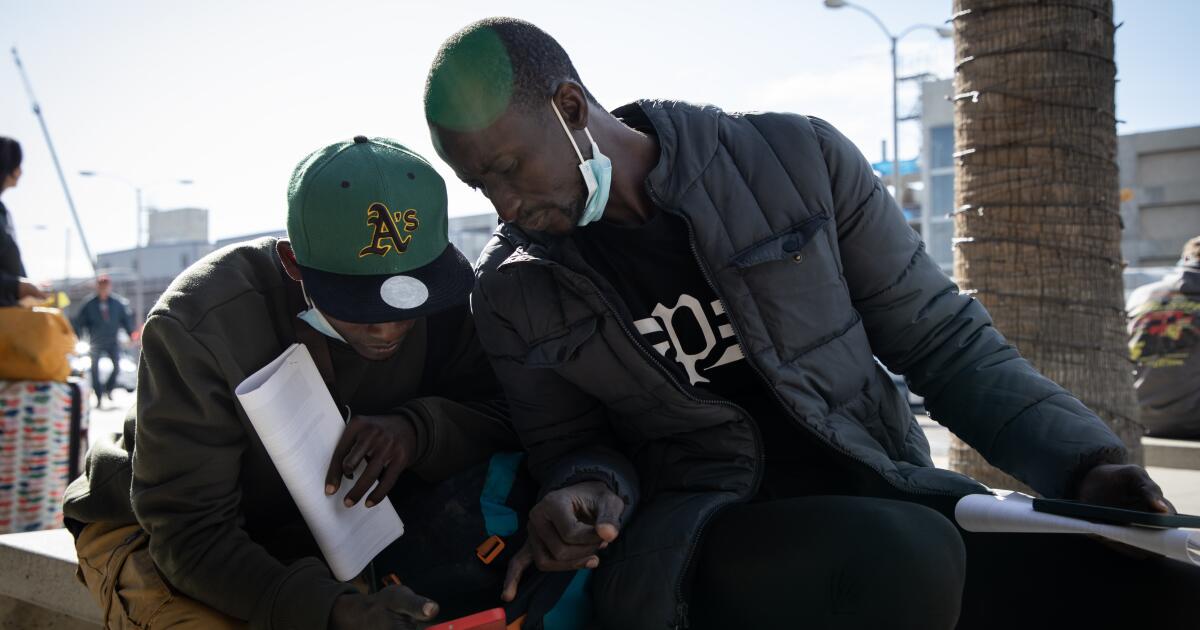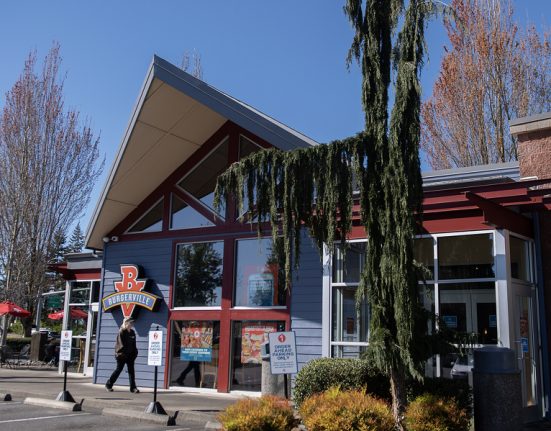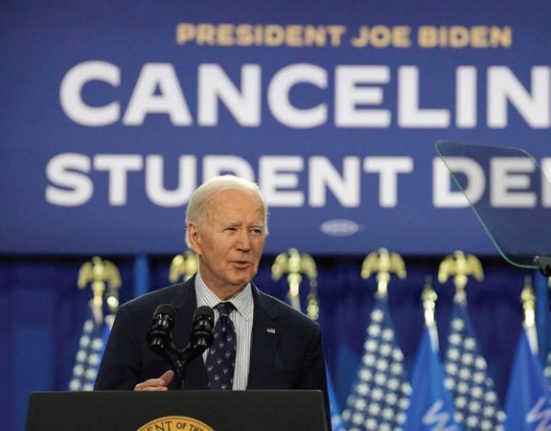San Diego County is one step closer to finding a long-term solution to assist migrants arriving in the region reach their final destinations, with a recent allocation of $19.6 million from the federal government.
How exactly that money might be used, however, must still be worked out.
The grant is part of the Federal Emergency Management Agency’s Shelter and Services Program, or SSP, which provides funds to non-federal entities that provide shelter and other eligible services to migrants.
The program was enacted by Congress in late 2022 in response to an increase in migrants — many of them asylum seekers — arriving at the nation’s southern border. Locally, more than 120,000 migrants have been released into San Diego in the last six months after being processed by U.S. Border Patrol, according to county Supervisor Jim Desmond.
Although the county wasn’t anticipating the SSP allocation, the federal grant comes as the county has been calling for federal assistance to support a long-term transfer center and respite shelter to avoid having Border Patrol release migrants on the streets.
About 99 percent of migrants spend only a short time in the county before moving on to their final destinations, according to county officials. Many spend one or more nights at the San Diego International Airport before moving on.
The county Board of Supervisors voted 4-1 in February to accept a concept paper and advocacy plan to support a center long term. The vote came days after a temporary migrant welcome center — operating on $6 million in county funds — closed earlier than expected.
Located in central San Diego, the temporary welcome center was operated by SBCS — formerly known as South Bay Community Services — and provided supportive services such as food, Internet and transportation to more than 81,000 people over the course of about four months.
“Because of all the challenges we’ve faced and the fact that the (temporary) migrant welcome center worked so well, I’m really thrilled that we were able to receive the funding,” board Chair Nora Vargas told the Union-Tribune Friday. “Our work is not over, and we are now working to adopt a sustainable, federally funded migrant transition center in San Diego County.”
The approximate cost to open a local migrant center and shelter ranges from $12 million to $345 million — the high end for a potential downtown location — depending on options to lease, buy or rehabilitate an available facility, according to the county’s plan.
“Thanks to a united voice across San Diego, we now have federal resources to stop the strain of the hundreds of daily street releases that have been occurring since the end of February,” Supervisor Joel Anderson said in a statement.
However, the SSP funding is not a competitive grant in the traditional sense, rather FEMA decides each region’s allocation and chooses the fiscal agents, such as the county and its community partners who are providing services.
The county will still need to submit an application to determine how they will spend the funds, which need to be within specific parameters.
Vargas said the county is still exploring its options to ensure it can maximize the funds to best serve the region’s needs. The county has until April 26, to submit its application.
A total of $300 million in SSP grants were authorized nationwide this fiscal year.
In addition to the $19.6 million allocated to the county, Catholic Charities’ San Diego branch also received $19.6 million for a total of $39.2 million to fund migrant services in the region.
Catholic Charities will use funds to continue operating its shelters for asylum seekers in both San Diego and Imperial counties, said CEO Vino Pajanor.
Since April 2021, the shelters have assisted more than 317,000 individuals from more than 140 countries.
“Our migrant respite shelters provide the most vulnerable asylum seekers who are processed by DHS and released into our care with a warm welcome, temporary shelter, basic needs, and assistance with reaching their final destination, reuniting with their family and sponsors as they await the next steps of their asylum process,” Pajanor said.
An additional $340.9 million in SSP funding will be made available as part of a competitive grant later this fiscal year, according to federal officials.
Last fiscal year, of the $363.8 million made available to eligible SSP applicants nationwide, Catholic Charities received just over $29 million for services in San Diego, which they split with Jewish Family Service.
This is the first time San Diego County was allocated SSP funding, as Catholic Charities and JFS were previously doing the bulk of the work to provide assistance to asylum seekers locally.
“The fact that our net amount (in federal funding) for the region is greater this year, I think, is a testament for the advocacy that we’ve been doing,” Vargas said.
SSP funds aren’t provided upfront but are rather reimbursed to entities later — something the county was hoping to avoid — and are viewed by many as only another temporary stop-gap for the region.
“It’s important for us to continue to really think about how we’re going to address this global, humanitarian crisis,” Vargas said. “But let’s not forget, this is a federal issue, this is not something that counties should be responsible for. And I want to make sure that we continue to advocate for that. … The federal government has to really think about how they’re going to address this long term.”
DHS officials said the significant demand for migrant services nationwide exceeds the limited SSP program.
That’s why the agency is joined by San Diego’s congressional delegation and other neighboring border communities in continuing to call on Congress to pass the bipartisan border security agreement, which would, in part, provide an additional $1.4 billion in SSP funds and provide additional needed tools and resources to respond to historic global migration.
“While I welcome this announcement,” Rep. Mike Levin said in a statement, “I also know we have more work to do.”
Staff writer Alexandra Mendoza contributed to this report.







